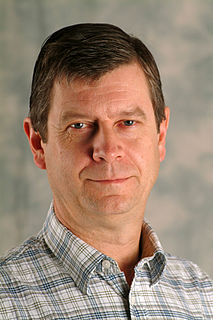A Quote by Emmanuelle Seigner
Acting in another language is great, and I've done that. But you can't do it as well as you can do it in your own language.
Related Quotes
One way to think about what psychedelics are is as catalysts for language development. They literally force the evolution of language. You cannot evolve faster than your language because the language defines the culture of meaning. So if there's a way to accelerate the evolution of language then this is real consciousness expansion and it's a permanent thing. The great legacies of the 60's are in attitudes and language. It boils down to doing your own thing, feeling the vibe, ego-trip, blowing your mind.
Language designers want to design the perfect language. They want to be able to say, 'My language is perfect. It can do everything.' But it's just plain impossible to design a perfect language, because there are two ways to look at a language. One way is by looking at what can be done with that language. The other is by looking at how we feel using that language-how we feel while programming.
when Christian theology becomes traditionalism and men fail to hold and use it as they do a living language, it becomes an obstacle, not a help to religious conviction. To the greatest of the early Fathers and the great scholastics theology was a language which, like all language, had a grammar and a vocabulary from the past, but which they used to express all the knowledge and experience of their own time as well.
We believe we can also show that words do not have exactly the same psychic "weight" depending on whether they belong to the language of reverie or to the language of daylight life-to rested language or language under surveillance-to the language of natural poetry or to the language hammered out by authoritarian prosodies.
Every time another tribe becomes extinct and their language dies, another way of life and another way of understanding the world disappears forever. Even if it has been painstakingly studied and recorded, a language without a people to speak - it means little. A language can only live if its people live, and if today's uncontacted tribes are to have a future, we must respect their right to choose their own way of life.
If a novel is written in a certain language with certain characters from a particular community and the story is very good or illuminating, then that work is translated into the language of another community - then they begin to see through their language that the problems described there are the same as the problems they are having. They can identify with characters from another language group.




































